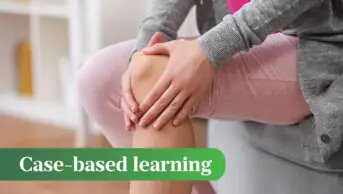
Shutterstock.com
Most antidepressants are ineffective at reducing pain or have unproven effectiveness for common pain conditions, according to a large review of evidence published in the BMJ on 1 February 2023.
In 2021, the National Institute for Health and Care Excellence (NICE) issued guidance recommending that antidepressants be considered for primary chronic pain conditions, although it accepted that there was limited evidence antidepressants actually reduce pain.
While this latest review found some evidence that some antidepressants work for some pain conditions, the researchers said their findings showed the need for “a more nuanced approach” when prescribing antidepressants for pain.
Researchers from the UK, Denmark and Australia conducted a meta-analysis of systematic reviews of antidepressants for pain conditions, where an antidepressant had been compared to placebo. They included results from 26 reviews, covering 8 antidepressant classes for 22 pain conditions. The systematic reviews included 156 placebo-controlled trials involving more than 25,000 participants in total.
They found evidence that certain antidepressants were likely to be effective for 8 of the 22 conditions, including serotonin and norepinephrine reuptake inhibitors for back pain and post-operative pain (moderate-quality evidence); and tricyclic antidepressants (TCAs) for irritable bowel syndrome and chronic tension headache (low-quality evidence)
The researchers found no high-quality evidence to support the effectiveness of any antidepressant for any condition. For the remaining 14 conditions, there was either evidence that they did not work (TCAs and selective serotonin reuptake inhibitors (SSRIs) for functional dyspepsia, SSRIs for back pain, fibromyalgia and non-cardiac chest pain) or the evidence was inconclusive.
The NICE guideline recommends exercise and psychological therapy, but also says prescribers should: “Consider an antidepressant, either amitriptyline, citalopram, duloxetine, fluoxetine, paroxetine or sertraline, for people aged 18 years and over to manage chronic primary pain, after a full discussion of the benefits and harms.”
The guidance says that patients should be told the medicines “may help with quality of life, pain, sleep and psychological distress”, even if the patient does not have depression.
Emma Davies, advanced pharmacy practitioner in pain management at Cwm Taf Morgannwg University Health Board, said this was a key point, and that the findings from the new review were in line with the advice from NICE.
“There is some evidence that [antidepressants] reduce pain but also the distress caused by chronic primary pain. So you are not necessarily prescribing to reduce pain per se. It might be a helpful side effect but you are aiming more at the mood element in that case,” she said.
However, she said the new evidence should be treated with caution. “There are not a huge number of options in the first place. Most [medications] are not that helpful for most people. This [new review] probably suggests the same thing. The likelihood they are going to make a massive difference is quite small. The difficulty comes when people think that means don’t even start them. We don’t know who is going to benefit.”
In an editorial linked to the review, Cathy Stannard, clinical lead for pain transformation at NHS Gloucestershire Integrated Care Board, said that it “adds to mounting evidence challenging the use of medicines for pain”.
She continued: “Clinical guidelines are not rules but valuable aids to decision making. Clinicians continue to prescribe medicines for which the evidence is poor because they observe that some people respond to them, albeit modestly. But all medicines carry risk of harm and there are other, less potentially harmful options more likely to help people to live well with pain.”
Roger Knaggs, professor in clinical pharmacy practice at the University of Nottingham and a specialist in pain management, declined to comment about whether the NICE guideline should be reviewed, as he is a member of the guideline development group. However, he said “[the review] would be considered as part of review process according to NICE processes”.
- This article was amended on 27 March 2023 to correct Emma Davies’ affiliation
You may also be interested in

Research proves that antibiotics are ineffective in chronic lower back pain with Modic change

Case-based learning: management of complex regional pain syndrome with a transdermal unlicensed medication
